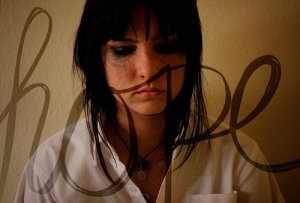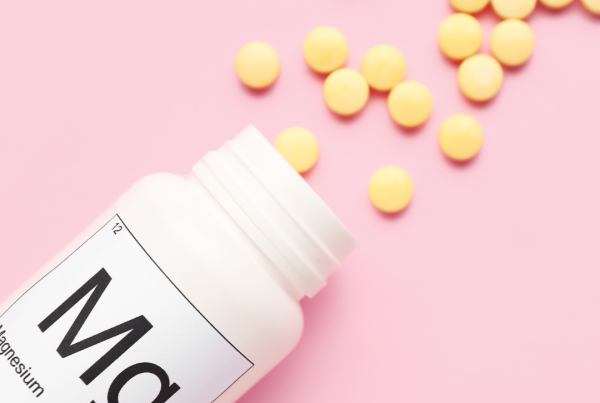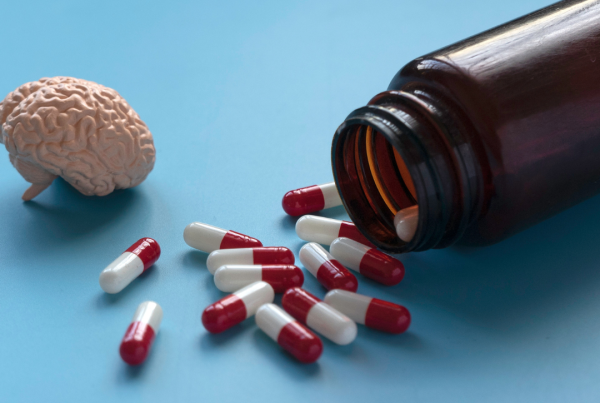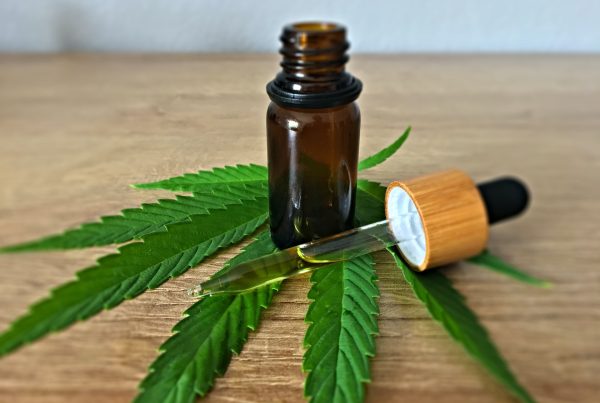Before I found my path of integrative medicine, I used to want to be a psychiatrist. I wanted to help heal the mind. I quickly learned that the mind is very solid and strong and will only heal when it’s ready and willing. This quickly stirred me away and I didn’t want to contribute to a pill popping society so I journeyed on until I found my path. Regardless of when I was doing clinical trials and pharmaceutical research on depression or seeing suicidal patients in the ER it has become apparent depression is everywhere and rapidly rising. Over 9% on the US population documented seeks medical care associated with depression and over $43 billion US dollars is spent on medical costs. It’s projected in 2020 Depression will be the second leading cause of disability in this country (1). I won’t go into my personal feelings on what I think about our Mental health system; however will say it needs to be restructured. There are still more and more people committing suicide because they’re not able to get help for whatever reason. Suicide accounts for over 472,000 Emergency department visits, and this statistic is from 2012! The suicide rate in America has increased making it the 4th leading cause of death in ages 18-65 and firearms being the number one method use (2). More females than men are depressant and will attempt suicide but men are more likely to follow through. Men are less likely to seek help. These facts are made to bring awareness to you so you can either help yourself, or guide your loved one around you so they don’t become another statistic. Here are a few tips on what you can do to help with depression.
1.Rule out underlying medical conditions
A lot of medical problems can make you depressed including abnormal hormones like thyroid, adrenal fatigue or low vit d, vit 12, iron levels. These are all things your doctor can check for you. If you’re on any medications, some of the side effects could be contributing to your feelings of sadness and hopelessness. Have your genes tested, you may have a MTHFR gene predisposing you to depression. This usually runs in families. You may need methylated folate like deplin, and menthylated b vitamins which will help get you through it. I’m not against conventional antidepressant medicines. Although they do have many side effects, they do work especially if monitored closely by physicians. Taking antidepressants along with the things I discuss, will only help and be even more beneficial.
2.Talk about it
If you or loved one is experiencing symptoms of depression you need to get to the root cause. What is making you feel this way and why? It’s great to have supportive family members and loved one around to guide and encourage you on this journey. Finding a social circle helps depending on the situation or etiology of your depression. There are many support groups now ranging from recovering drug abuse to single mom support groups. Depression varies depending on medical illness as well so ALWAYS discuss your symptoms with your doctor who will be able to guide you in the right direction. There are many therapists available who are able to help you further, so ask your doctor for referral.
3.Change your mindset
Figure out what really is the root cause of your depression and take action. If you’re depressed about your job, financial situation, your love life, whatever it is, figure out how you can change it! Ultimately you have control of your life and your mind, but you have make the necessary changes to be happy.
4. Stay Busy!
Find a hobby you enjoy and just do it. Staying busy is a good idea and helps your mind not dwell on negative things and situations. You’ll find yourself learning new tasks and pick up new things you didn’t even realize you enjoyed doing. Give it a try.
5.Find some inspiration!
Have inspirational quotes ready for you every day and have positive idols. One of my favorites is Louis Hays as well as reading positive Brahma Kumaris thoughts of the days. Whatever and whoever you get your inspiration from gravitate to that daily and watch your negative thoughts turn into positive ones!
6. Needle it out
Try acupuncture, studies show this ancient Chinese medicine actually works. There was a recent published study showing acupuncture and meditation in conjunction with conventional therapies augment mental health outcomes with conventional treatment in military vets (4). The worst that can happen is you feel more relaxed and at ease over a period of treatments.
7.Work it out
Literally, exercise is great for depression, releasing endorphins and making you feel happy.There is nothing like getting good old fashion exercise. Not only will you feel accomplished and feel great about your body, but you are nourishing your souls. Many studies actually show a reduction of depressive symptoms with exercise ( 8).
8. Calm the Mind
I’m a big fan of yoga, reiki and meditation. There have been times when I have personally been depressed and it was through yoga, meditation and reiki that I got through it. This is one of the reasons I became certified to be able to spread and teach the knowledge of what I know to those who need it. There are numerous studies that all show that mindfulness stress reduction like , yoga, meditation aid in stress reduction (3).Although, I’m personally spiritual, you don’t have to be to try any of these. Reiki originated in Japan and it’s claim to fame is energy healing from the universe with or without touch. Many people experience calmness, and sense of relaxation after one treatment. Like yoga, a practioner can active the anahata (heart) chakra which is associated with depression and send healing love and energy there. There have been limited studies, however if you have one session you’ll be back for more.
Try guided meditation if you are a novice to it. There are many free you-tube videos out there that you can try. I’m a fan of Health Journey’s guided mediation on depression by Bellaruth. You can also try going to group meditations or learn to do it at home by yourself. I am also quite fond of hypnosis which can also help with depression as well. There are many studies linking meditation to calming the mind, improving blood pressure and easing anxiety and depression.
9. Write about it
Last but not least, journal! Journaling has been one of my favorite things to do ever since I was a child. It makes me connect with myself and when I read what I write, I view it from a different perspective. This is a good exercise to do and you might actually get inspiration from it. The worse thing that happens is you actually realize you’re the person that is control of your life and your happiness!
To be cont..
References:
1. MAURER, DOUGLAS M., DO, MPH. “Screening for Depression.” – Am Fam Physician. 2012 Jan 15;85(2):139-144
2. DAVID NORRIS, MD, and MOLLY S. CLARK, PhD, “Evaluation And Treatment of the Suicidal patient”Am Fam Physician. 2012 Mar 15;85(6):602-605.
3. Sharma, M, Rush, SE. “Mindfulness-Based Stress Reduction as a Stress Management Intervention for Healthy Individuals: A Systematic Review” J Evid Based Complementary Altern Med. 2014 Oct;19(4):271-86 epub 2014 Jul 22.
4. Hull A, Reinhard M, McCarron K, Allen N, Jecmen MC, Akhter J, Duncan A, Soltes K.
Sharma M Rush SE Acupuncture and meditation for military veterans: first steps of quality management and future program development.Glob Adv Health Med. 2014 Jul;3(4):27-31.
5. Metro Creative Connection. “Vitamin D Might Help Fight Symptoms of Depression.” Timesonline. 9 May 2014. Web. 20 Aug. 2014
6. Gloth FM 3rd, Alam W, Hollis BVitamin D vs broad spectrum phototherapy in the treatment of seasonal affective disorder. The Journal of Nutrition, Health & Aging [1999, 3(1):5-7]
7. Golam M. Khandaker, PhD, Rebecca M. Pearson, PhD; Stanley Zammit, PhD; Glyn Lewis, PhD, Peter B. Jones, PhD Association of Serum Interleukin 6 and C-Reactive Protein in Childhood With Depression and Psychosis in Young Adult Life A Population-Based Longitudinal Study. JAMA Psychiatry. Published online August 13, 2014
8. O’Neal, Heather A.; Dunn, Andrea L.; Martinsen, Egil W. “Depression and exercise” International Journal of Sport Psychology, Vol 31(2), Apr-Jun 2000, 110-135.



